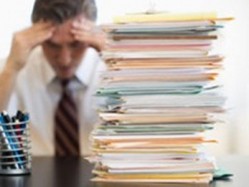ASK THE EXPERTS
How to deal with an accident claim from a customer

Problem: A customer has threatened to sue my pub after falling off a table in the premises. How can I defend the claims on the basis that the risk was obvious to her when she got up on the table?
Solution: The courts have been more willing to accept that people can have accidents and sustain serious injuries without anyone else being to blame for those injuries other than themselves in recent years. A bad injury is not enough to entitle someone to compensation.
Section 2 (5) of The Occupiers Liability Act 1957 states that the common duty of care does not impose on any occupier "any obligation to a visitor in respect of risks willingly accepted… by his visitor" - there is no liability on the part of owners; including those of bars, restaurants, hotels and similar establishments, for risks willingly accepted by their customers.
The most recent example of this trend is the case of Ruth Geary v J D Wetherspoon Plc. Geary attended the premises of a JD Wetherspoon’s pub in Newcastle and decided to slide down a banister. Unfortunately she suffered devastating injuries and attempted to sue, but her claim against the pub chain failed.
Geary pursued her claim on the basis that Wetherspoons was negligent and in breach of its duty under the Occupiers Liability Act. Despite that the banister was below the current building regulations prescribed height and that there had been previous accidents, the court rejected her claim.
What should you do?
A claim where a customer has fallen off a table should be possible to defend on the basis that there is no duty of care in relation to a visitor who willingly accepts risk and no duty of care to protect the customer from their own voluntary assumption of an obvious risk.
A simple approach is best for an occupier. There is nothing unsafe about bar premises which contain tables so there can be no liability under the Occupiers Liability Act or in negligence either. The danger was created by the decision to stand on the table. The table was not defective, the injury has been caused by what the customer chose to do upon it.
Accident claims
Remember, some accident claims are successful simply because the evidence cannot be produced to dispute them. Ensure that you:
- Keep not only an accident book but full accident investigation documentation
- Train staff to deal with situations such as these
- Inform your public liability insurer promptly if an accident does occur
- Use your common sense. Even if you will not necessarily be liable for a customer falling off a table, still tell them to get off
Your insurer can refuse indemnity under their policy if you do not inform your insurer of the accident promptly. If the customer suffers serious injury or is rendered wheelchair bound then you could be looking at a claim worth £5 million plus.























